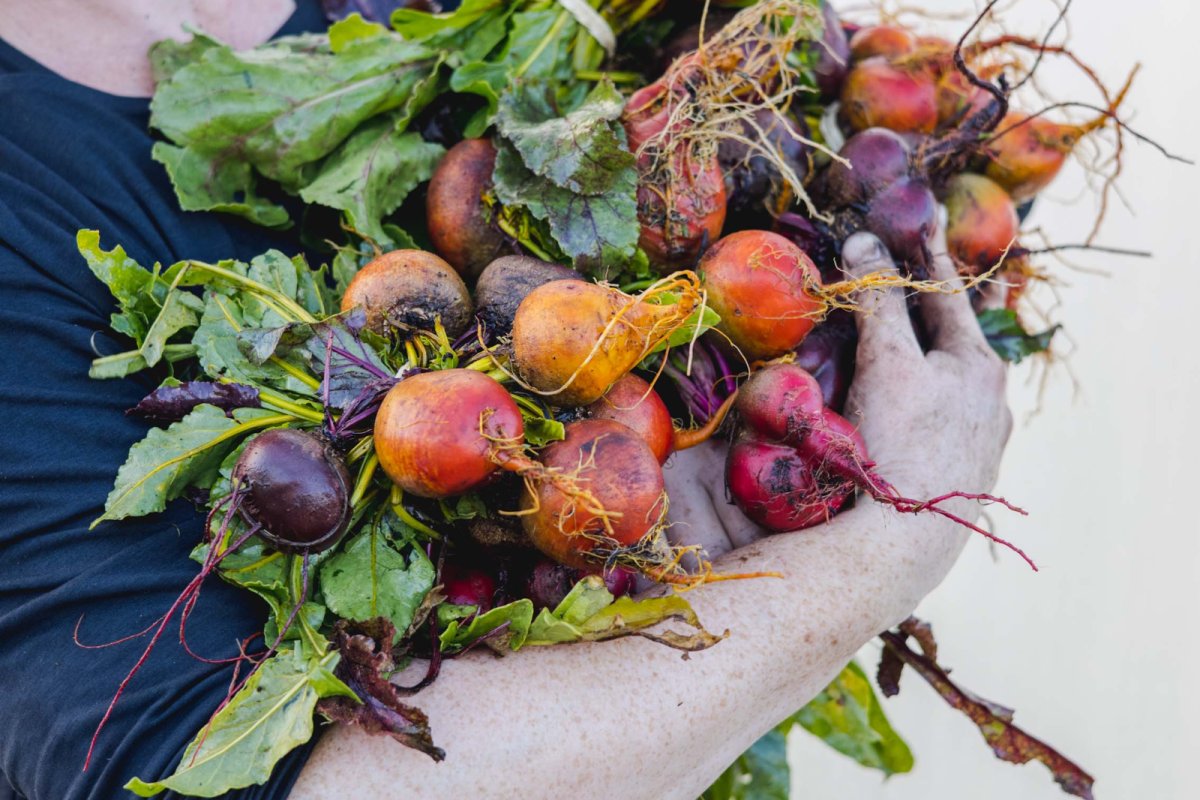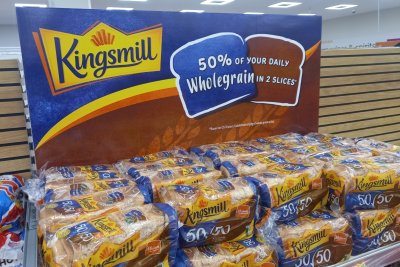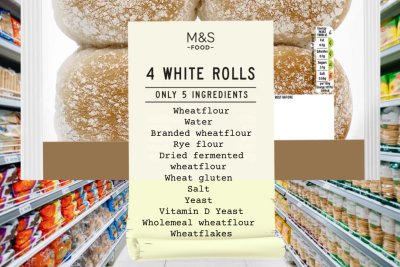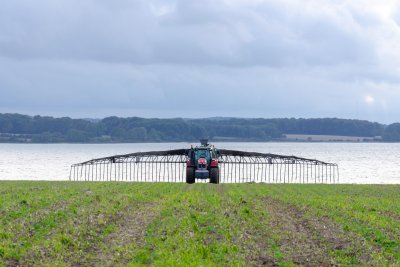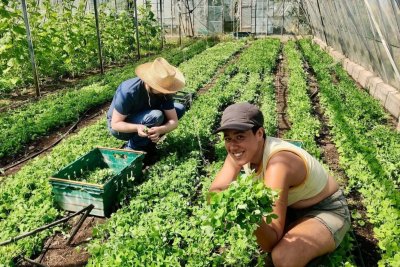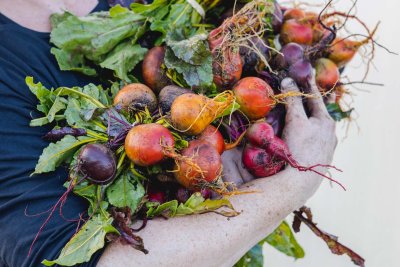 Credit: Rachel Jones
Credit: Rachel Jones
Beyond supermarkets: How local food systems are closing the loop on food waste
Sustain’s Local Food Retail Coordinator, Charlotte Gage, argues that focusing on addressing supermarket waste does not go far enough to tackle the issue of food waste, and shares what we could learn from local food systems.
We waste around a third of all food produced for human consumption. To solve this issue, there is a dominant focus on improving business practices of large supermarkets. Efforts in the UK largely focus on improving supermarket practices. WRAP’s Food Waste Reduction Roadmap, supported by major retailers like Tesco and Sainsbury’s, prioritises supermarket surplus redistribution, better product labelling, and reduced packaging for fresh produce to lower consumer-level waste. While these recommendations are crucial to making significant, short-term changes, as seen in Denmark, where food waste dropped 25% through better business practices of curbing bulk-buy promotions (see Guardian article), a broader, systemic change is needed for lasting impact.
In the current supermarket model, profit often takes precedence over waste reduction or sustainable practices. Supermarkets cause a significant amount of farm waste, with practices of pursuing cheaper food alternatives from overseas, cancelling or changing orders at the last minute and strict fruit and veg specifications. According to research, one in five farmers (22%) say they have suffered a wasted crop due to cancelled orders from supermarkets.
Effective local food systems, like those Sustain are aiming to boost through the Local Food Growth Plan, tend to inherently produce significantly lower waste. They are rooted in shorter and farm-focused supply chains, while often providing minimally processed, healthy food for communities. Here are some of the key ways they reduce food waste:
-
Farm-orientated sourcing Many local food retailers source directly from small-scale, local farms, and adjust their product offerings based on seasonal yields and conditions. This allows farmers to adapt to weather variability and ensures that surplus or “wonky” produce is sold, reducing waste at the farm gate. Examples include vegetable box schemes such as Growing Communities in East London and many more on Ooooby a major platform for local vegetable box schemes, ethical wholesalers such as Organic North, Food Hubs such as Galloway Food Hub in Scotland, as well as local farmers’ markets.
-
Pre-ordering produce Weekly subscription schemes source only the necessary amount of food for each delivery, reducing waste and avoiding long storage times. Better Food Shed in London, the wholesale arm of Growing Communities coordinates with local farms to harvest fresh produce for weekly orders, minimising storage time and cutting down on transportation.
-
Supporting families with recipes The UK-based vegetable box scheme Riverford provides recipe cards with each box to inspire customers to make full use of their produce, helping to reduce spoilage and encourage cooking with a range of ingredients.
-
Minimising packaging Farmers' markets typically minimise plastic wrapping for fresh produce, allowing customers to purchase only what they need and reducing unnecessary packaging waste. This model supports WRAP’s recommendation for the UK government to restrict packaging for uncut fresh produce.
-
Fresh food Fresher food lasts longer and is less likely to be wasted. Locally sourced produce has fewer food miles, reducing spoilage and often maintaining better taste and nutrition, with less time for the food’s nutrient density to reduce after being picked.
-
Closing the product lifecycle Riverford take extra care by not only donating surplus food to charities like FareShare, but also feeding over 900 tonnes of root vegetables each year to their dairy herd, and composting the remaining waste to enrich the soil, returning valuable nutrients to the land.
Policy recommendations for sustainable food waste management
To effectively tackle food waste, UK policymakers need to support local food systems by:
-
Supporting more localised, sustainable food supply chains through investment into ethical, sustainable and farmer-focused supply chains that enable healthy, sustainable food to be produced for everyone.
-
Improving supply chain fairness and flexibility by reducing the fear preventing growers from reporting unfair practices, reforming and expanding supply chain regulations and the Groceries Code Adjudicator (GCA), responsible for regulating relationships between the UK's largest grocery retailers and their direct suppliers.
Interested in local food and boosting it within your community? Sustain are working with LWA, Sustainable Food Trust, Pasture for Life and FFCC to create an ambitious plan to growth the local food sector. Find out more and sign up to our newsletter.
Local Food Plan: Creating a plan to grow the local food sector 10x by 2030.
Sustain
The Green House
244-254 Cambridge Heath Road
London E2 9DA
020 3559 6777
sustain@sustainweb.org
Sustain advocates food and agriculture policies and practices that enhance the health and welfare of people and animals, improve the working and living environment, promote equity and enrich society and culture.
© Sustain 2025
Registered charity (no. 1018643)
Data privacy & cookies
Icons by Icons8
